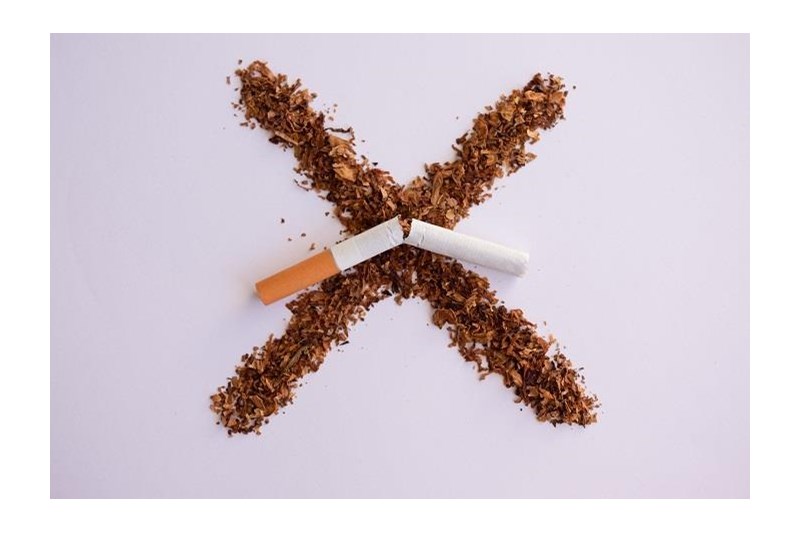Government urges call to smokers to make a quit attempt for no smoking day
Published: 13/03/2024
Leading charities, including Action on Smoking and Health (ASH), Cancer Research UK and Asthma + Lung UK, are joining forces with the government to encourage the nation’s 5.3m smokers to make a quit attempt this No Smoking Day, March 13, 2024.
The campaign comes as part of the government’s bold plans to bring about the first smokefree generation and introduce legislation so children turning 15 this year or younger can never legally be sold tobacco. Almost every minute of every day, someone is admitted to a hospital in England with a smoking-related disease. From 2022 to 2023, there were over 400,000 hospital admissions in England due to smoking.
Quitting smoking is the best thing you can do for your health at any age, and the benefits begin immediately. After eight hours, your oxygen levels recover, and the harmful carbon monoxide level in your blood will have reduced by half. After 48 hours, all carbon monoxide will have been flushed out, your lungs will clear out mucus, and your sense of taste and smell will improve.
Stopping smoking is also one of the best things people can do to save money to spend on other things. The average smoker spends around £47 a week on tobacco, which is around £2,450 a year. More broadly, it costs society over £17bn per year, which includes a £14bn cost to productivity and a £3bn cost to the NHS and social care.
Andrea Leadsom, public health minister, said, “Smoking is the biggest preventable killer in the UK and places a huge burden on our NHS. Cigarettes are responsible for 64,000 deaths a year in England - no other consumer product kills up to two-thirds of its users.
“That’s why No Smoking Day is still so important 40 years from its launch. We are taking action to prevent our children from ever lighting a cigarette, and our proposed historic ‘Tobacco and Vapes Bill’ will safeguard the next generation from the harms of smoking and risk of addiction.”
Up to two in three long-term smokers will die from their smoking. Despite the harms associated with smoking, it’s estimated that nearly 50m cigarettes are smoked every day in England, with every single one negatively impacting the smoker’s health.
Chris Whitty, chief medical officer for England, said, “Cigarettes kill. They cause at least 15 different types of cancers and increase your risk of developing more than 50 serious health conditions.
“Quitting smoking is one of the best things you can do for your health - no matter your age or how long you have smoked.”
Coleen Nolan, presenter, singer and TV personality, is currently on her quitting journey following a health scare, shared her story to encourage others.
Coleen said, “I smoked for about 40 years and was heavily influenced by my friends and family around me. At such a young age, I wasn’t aware of the health risks of smoking and soon found myself becoming addicted.
“Following a recent health scare, I realised how precious life is and became determined to quit, not just for my health, but so I can be there fully for my children and grandchildren. To anyone out there thinking of giving up smoking, my advice is to do it!”
She is joined by ex-smoker and cancer survivor Sue Mountain, who shares her story to urge smokers to quit smoking before it’s too late. Sue is featured in a TV advert released by the Department of Health and Social Care as part of a new smokefree campaign that encourages people to quit smoking.
Sue Mountain said, “I never once thought I’d get cancer. Not once. To tell your family you’ve got cancer through smoking is really hard. My kids thought they were going to lose their mam.”
Smoking rates have reduced by two-thirds since the first year of No Smoking Day. But smoking is still the single largest preventable cause of death in England - estimated to account for 64,000 deaths annually.
Stopping smoking is the best thing people can do for their health, and it can significantly reduce the risk of younger people taking up smoking and becoming addicted. Currently, four in five smokers start before the age of 20 and smoking from a younger age is linked to being more likely to smoke in later years.
Plans to introduce the most significant public health intervention in a generation and phase out smoking are progressing at pace. The UK is set to be the first country in the world to create a smokefree generation. The government is proposing the phasing out of the sale of tobacco so that any child born on or after January 1, 2009, can never legally be sold cigarettes.
Author: N/A

.jpg?width=300&height=200&scale=canvas)







.jpg?width=150&height=100&scale=canvas)



